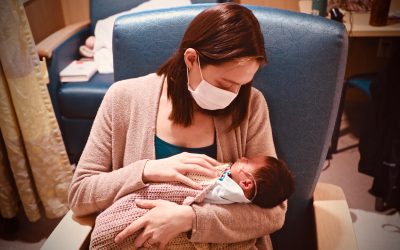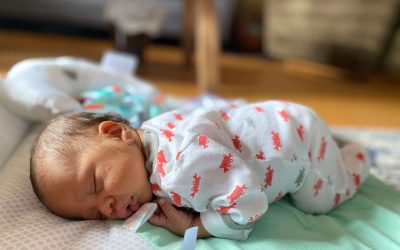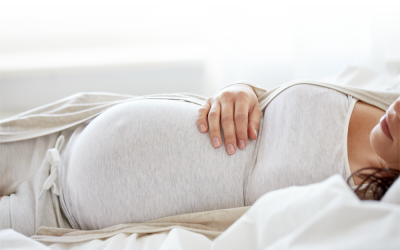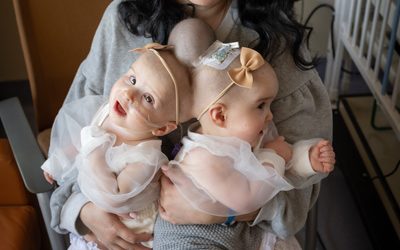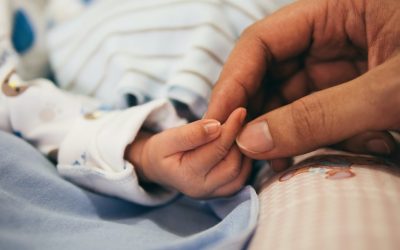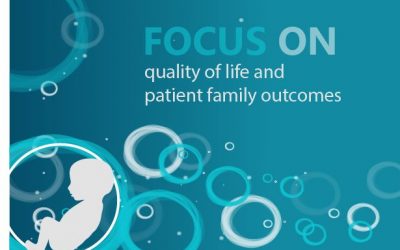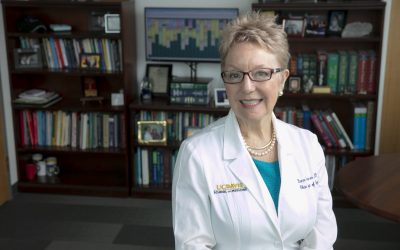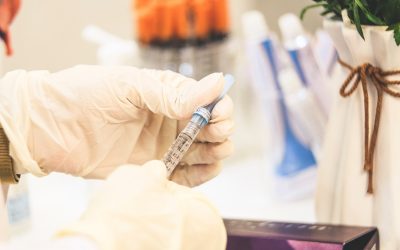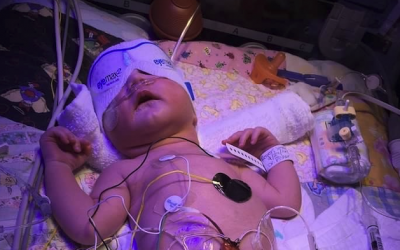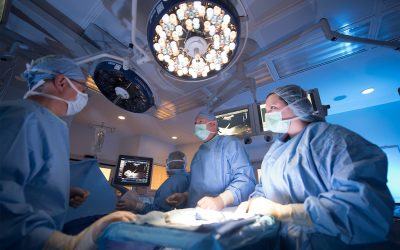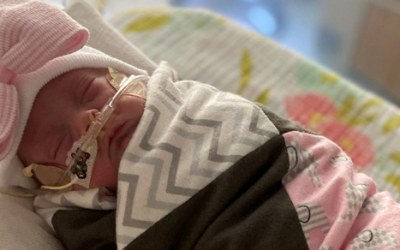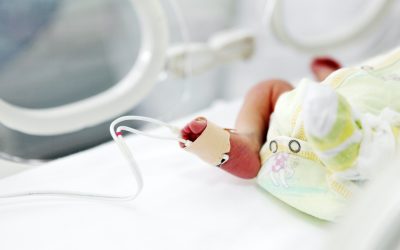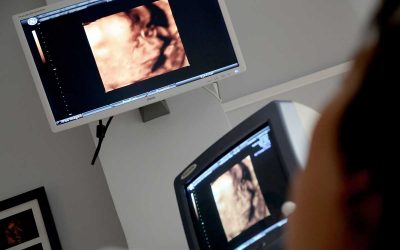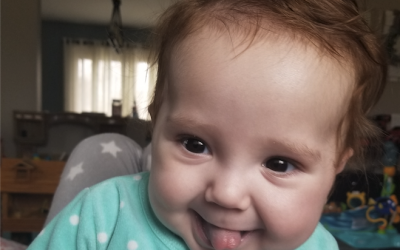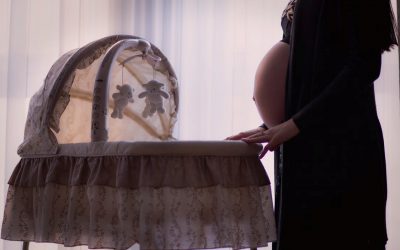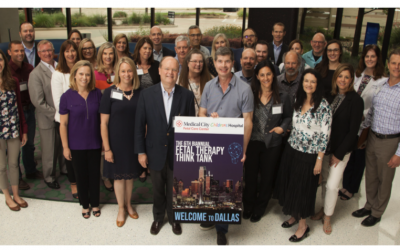Cincinnati Children’s Reaches New Milestone for Improving Outcomes in Babies with Spina Bifida
Cincinnati Children’s, a national leader in prenatal myelomeningocele surgery, recently conducted their 100th prenatal surgical repair. Kelly Song’s daughter was diagnosed with spina bifida at 20 weeks. Read more:
Fetal Care Chat: Bladder Outlet Obstruction/Lower Urinary Tract Obstruction
Fetal Health Foundation founder and Fetal Care Chat host, Lonnie Somers welcomes esteemed doctors from Cincinnati Children's Fetal Care Center as they discuss bladder outlet obstructions and hear an inspiring story about a miracle little boy, JJ....
Tangie’s Story | Grief, Advocacy, Premature Birth and Black Maternal Care in the U.S.
The morning after I unexpectedly gave birth at 27 weeks, my doctor checked in on me and my baby at the Neonatal Intensive Care Unit (NICU). He said he spent the night in the hospital because we were both in critical condition and he didn’t know if either one of us were going to survive.
Baby Jabari gets a second chance at life
The doctor came in and told Trina that the baby likely had a lower urinary tract obstruction, meaning that he had extra tissue blocking his bladder. This didn’t allow urine to pass through, which meant that amniotic fluid wasn’t being produced to help the baby grow in the womb.
6 Tips for a Better Night Sleep While Pregnant
Being pregnant can be a challenging time, especially when it comes to doing naturally easy every day things — like sleeping. While sleeping might not seem like a problem at first, you’ll eventually see what we mean. Here are 6 tips to help you get a better night’s sleep while your belly continues to grow.
Fetal Care Chat: Women in Fetal Medicine
Fetal Health Foundation founder and Fetal Care Chat host, Lonnie Somers welcomes three amazing pioneering women in fetal medicine. Dr. Jenan Miller, Dr. Courtney Stephenson, and Dr. Diana Farmer.
Home at Last: Parker Overcomes a Life-Threatening CDH Diagnosis
CDH affects 1,600 babies in the U.S. each year. In CDH, a hole in the diaphragm allows abdominal organs to move upwards into the chest during development, crowding the lungs and inhibiting their proper growth. Underdeveloped lungs and blood vessels that supply the lungs can cause high blood pressure in the lungs, asthma, gastrointestinal reflux, feeding disorders and developmental delays in childhood survivors of CDH.
Rare Expertise for the Rarest Conditions: Unique Surgery Technique Saves Twin Babies
Upon meeting with Colorado Fetal Care Center maternal fetal medicine specialist and fetal surgeon Nick Behrendt, MD, the Oligmuellers learned their case of TTTS was severe. The best solution for TTTS is typically fetoscopic laser ablation. It’s a minimally invasive surgery in which the surgeon inserts a tiny scope into the uterus, through the amniotic sac.
Conjoined twins get life-saving care at UC Davis Health
The team at UC Davis decided to separate these conjoined twins at 9 months of age. They took special precautions such as house calls during COVID to give the girls the best chance at an amazing life.
NICHD Recognizes Hydrops Research Funded by FHF and the Brianna Marie Foundation as a Top Advancement of 2020
We're happy to share exciting news from recipients of our two-time research grant winner! In 2018 and 2019, the Fetal Health Foundation teamed up with the Brianna Marie Foundation to support Dr. Teresa Sparks and her team at the University of California, San...
Foundation and Fetal Therapy Think Tank Join Forces with 3 Bold New Initiatives
Dr. Timothy Crombleholme, Director Fetal Care Center of Dallas, and Lonnie Somers, Chair and Founder of the Fetal Health Foundation announce the joining of the Fetal Therapy Think Tank and the Fetal Health Foundation as one organization with the mission of improving...
One step closer to treating spina bifida with stem cells
With the CIRM funding, the UC Davis team will be able to launch their one-of-a-kind treatment in the coming months. It will be delivered while the baby is still in the mother’s womb (in utero). The complex procedure, with its unique use of a stem cell “patch,” could improve outcomes for children who are born with the severe form of spina bifida known as myelomeningocele.
Should You Get the COVID Vaccine While Pregnant?
“In general, SMFM strongly recommends that pregnant women have access to COVID-19 vaccines in all phases of future vaccine campaigns, and that she and her healthcare professional engage in shared decision-making regarding her receipt of the vaccine. Counseling should balance available data on vaccine safety, risks to pregnant women from SARS-CoV-2 infection, and a woman’s individual risk for infection and severe disease. As data emerge, counseling will likely shift, as some vaccines may be more suitable for pregnant women.
5 Ways Meditation Can Help During Pregnancy
When I was pregnant, it felt like my mind never stopped. When I would try to fall asleep at night, one thought after another would keep me up.
If that sounds like you, meditation is a wonderful way to quiet some of those intrusive thoughts, so you can wind down. With meditation, you will be concentrating on listening to your rhythmic, steady breathing and getting in touch with your baby.
Alloimmunization in Pregnancy: When the Blood Cells Attack
11-weeks pregnant with her third child, Jessica Reger expected this pregnancy to go as smoothly as the others, with the exception of a complicated delivery with her second baby that required an emergency surgery and blood transfusions. But a routine ob/gyn visit revealed an abnormal blood screen – her blood was alloimmunized.
Twin Anemia Polycythemia Sequence: The Slow Change That Alters Everything
The whole morning turned into changing and canceling appointments, meeting new doctors, and understanding a real new world of twins. My doctor explained so many things about my pregnancy, including how it had become high risk, and that we needed screening every two weeks for things like TTTS.
Maternal Fetal Medicine and Fetal Syndromes: The Basics for Expectant Parents
The joy that parents feel upon learning they are expecting is often tampered by medical complications and concerns. After a fetal syndrome is diagnosed, parents need to quickly understand the basics of the maternal fetal medicine world. Learn more about maternal fetal care centers and how to find them.
EXIT Procedure Saves Baby with Rare Tumor Diagnosis During Pandemic
Giving birth to a baby with an unusual prenatal diagnosis at 27 weeks in the midst of a global pandemic comes with its own unique challenges. That was one family’s reality earlier this year. But the care team at the Colorado Fetal Care Center — the only team in the region able to perform the procedure their baby needed to survive — was there to help them through it.
Integrated Fetal Health Centers Provide Unique Benefits to Mother and Baby
“Both the mom and fetus or newborn have access to a full range of hospital services from labs to imaging to counseling and surgery in one area. The close proximity also allows for further bonding between the parents and the infant at a critical time. Additionally, co-locating the care team fosters collaboration in emergency situations,” stated McGuinness.
Tips for new parents of multiples during the COVID pandemic
Parents of twins, triplets, and more have special concerns during the COVID-19 pandemic. Multiples of America shares some realistic tips to make it easier.
Theodore’s Memory: A Plea for More Ultrasounds During Pregnancy
The first time I felt the pain that I described to the doctors as Braxton-Hicks contractions, I didn’t know it was a placental abruption. Read more about Lailani and her story.
Mila’s CDH Story | From Diagnosis to Delivery – and Beyond
“In severe cases of CDH, the survival rate is ranging from less than 20% to 50%, but with FETO, we’re seeing a huge improvement in odds of survival,” said Dr. Lim. “Right now, it looks like survival rates as high as 80-90% are possible, but we’re still learning.”
Maverick’s Hypoplastic Left Heart Syndrome (HLHS) Journey
Babies born with Maverick’s heart condition and a restrictive or absent communication between the top two chambers of the heart, are born with abnormal lungs, in addition to the heart defect. In fact, most of these babies do not survive after birth. Maverick underwent creation of an opening in the top two chambers of the heart in fetal life with a stent, to allow him to be stable after birth..
Stress and Your Baby: New Study Identifies Impacts of Maternal Stress on Fetal Health
In a report entitled ‘The United States of Stress’, Everyday Health’s Nan-Kristen Forte reveals that one-third of Americans have gone to their doctors for a stress-related problem, which often affects their work, social lives, and inner peace. But for pregnant women, new research reveals that high levels of maternal stress pose even more worrisome problems, as it can have an effect even on their unborn baby.
Fetal Therapy Think Tank Joins Nonprofit Fetal Health Foundation
PRESS RELEASE APRIL 17, 2020 Collaboration of national fetal therapy and medical industry experts designed to advance fetal medicine The Fetal Health Foundation is excited to announce its unification with the Fetal Therapy Think Tank. The Fetal Therapy Think Tank is a...

